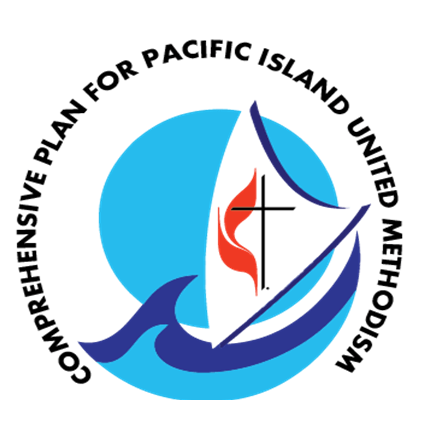Pacific Islander National Plan

General Conference 2012 passed a comprehensive plan for Pacific Islander ministry in the United States. The plan was developed over a four-year period by a committee staffed by Global Ministries, which is administering the work of the new entity.
The four year study explored ways to empower Pacific-Island United Methodists to fully participate in the life of The UMC and be agents of Christian love and service within the world community; enable Pacific-Islander United Methodists to navigate their faith life in their new surroundings, incorporating their gifts from their respective island homes with appropriate resources in their new home; join all members of The United Methodist Church in bringing different and diverse gifts to the table; and affirm the common heritage of Pacific-Island people.
Focus Areas
Leadership Development
Leadership development is a critical need within the Pacific Islander United Methodist Church ministry. In general, Pacific Islanders have been here in the United States for approximately four decades with many of them arriving as recent immigrants. In line with that state of recent migration, we have a United Methodist Pacific Island ministry that is young and fluent. Thus, much of the Pacific Island ministry that exists today is a hybrid of ministry.
Youth and Young Adult Leadership Development
Youth and young adult leadership development is a primary focus of the work of Pacific Island ministry. In most instances, the Pacific Island church can meet the spiritual and social needs of its adult members. However, there is room for improvement by meeting the needs of the second-generation who lacks sense of belonging and affirmation.
Ministry With the Poor
As first-generation immigrants, Pacific Islanders identify themselves with the poor in this country and their needs align with the needs of the poor. As with any new immigrant group, there is great need among the new immigrants as they transition from their native surroundings to their new surroundings with limited resources. The church is in the best place to provide the resources that can be used to alleviate the effects of poverty in its members’ lives and even for people in the community.
Health
Pacific Islanders have great health challenges. Changes in lifestyle and food intake as led to disturbingly high rates of serious chronic illness, including congestive heart disease, hypertension, and diabetes among Pacific Islanders, and yet, they are among the highest number of uninsured people in the United States. The church can be part of the solution in trying to end this downward spiral of quality of life due to bad health and end this cycle so that it does not affect the second generation in the same critical way.
Congregational Development
Developing new congregations and revitalizing existing congregations is a priority for the Pacific Island ministry. Thus far, we have managed to maintain existing church communities that have for the most part been transplanted from the home country. In most instances, people found themselves in communities that were shaped according to family, village, and regional ties from home countries, and therefore, it was easy to bind them together in church through their existing affiliation. Thus far, there has not been an intentional effort at developing and starting new congregations. The Plan envisions starting up and revitalizing 10 new and existing congregations within the next quadrennium.
Language Resources
As recent immigrants, Pacific Islanders have great language resources needs. The majority of Pacific Islanders speak only their native language and understand very limited English. However, their numbers are not sufficient enough to demand much attention from local government and existing community resources. Therefore, there are no or very little resources available to them.
Church as Community
In the Pacific Island context, the church is the community and the family is the community. This is certainly a gift and we want to use it to further the work of the church. We would like to enhance the role of churches in this area by being able to provide resources that will ensure the preservation of this value within the Pacific Island community. At the same time, this very notion can become a hindrance to growth in this new setting. Recognizing that this is a gift that Pacific Islanders can offer to the denomination and to the community here, it is important to explore ways that the Pacific Islander culture and tradition can be made relevant to this new setting and thereby contribute to its preservation in the long run.

